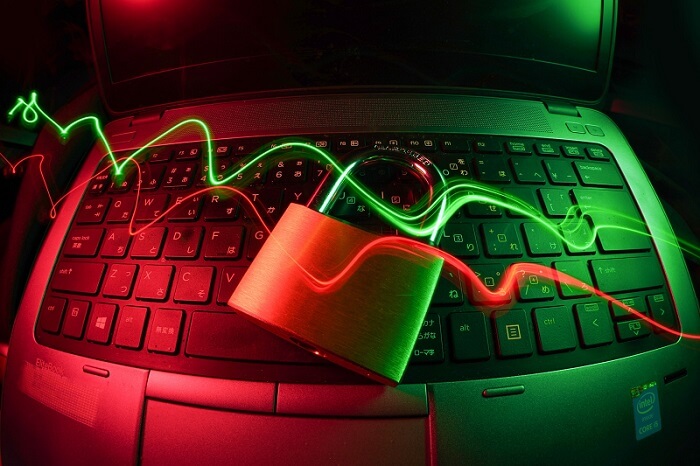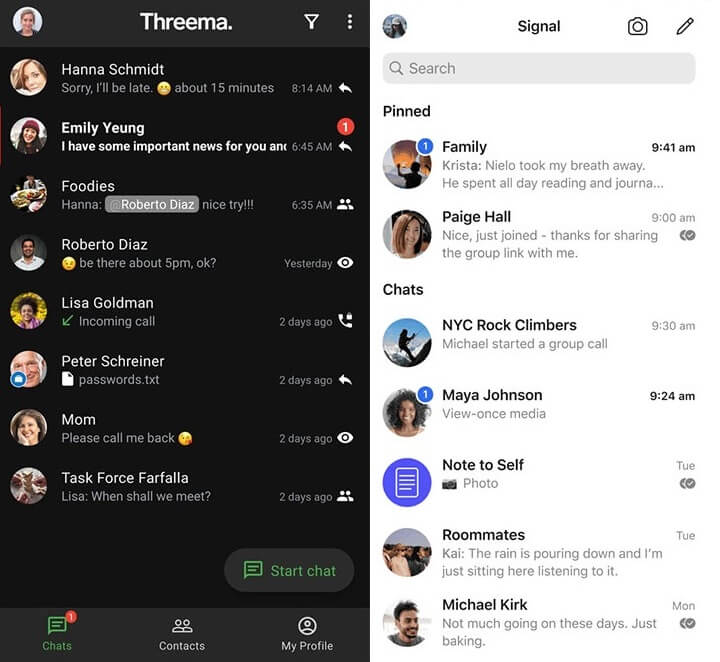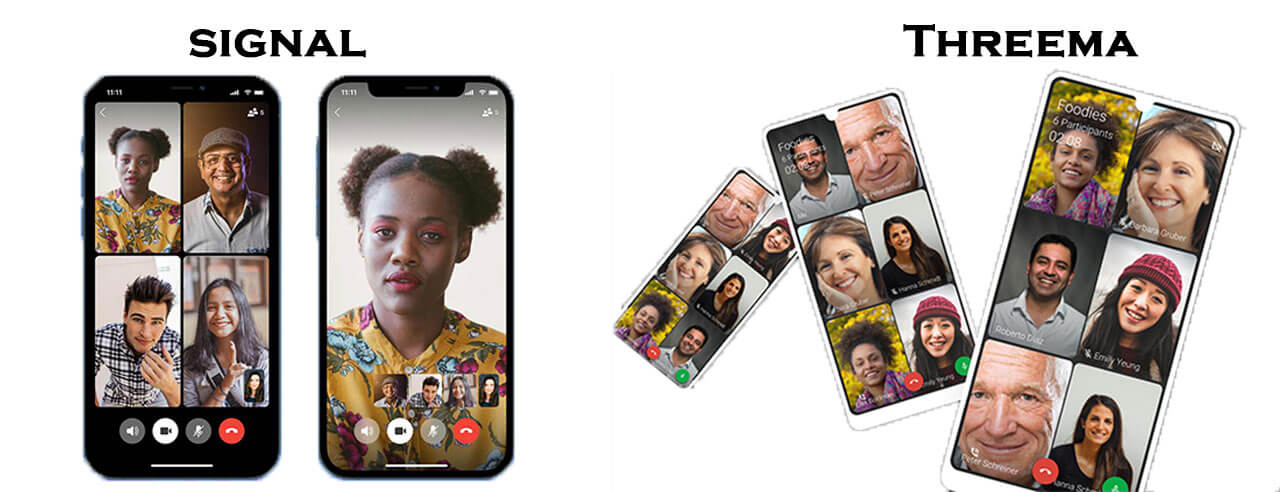In today's digital age, secure messaging apps have become an essential part of our daily lives. With the increasing concerns around online privacy and data protection, more and more people are turning to secure messaging apps to keep their conversations safe from prying eyes. Two such apps that have gained significant popularity in recent years are Threema and Signal. While both apps prioritize security and privacy, there are key differences between them that can make one more suitable than the other for your individual needs. In this blog post, we'll compare Threema and Signal across various parameters and help you make an informed decision on which app to choose.
In the following sections, we'll compare and contrast Threema and Signal across five key parameters - security features, user interface, group chat and video call capabilities, privacy and data protection, and availability and compatibility. We'll analyze the pros and cons of each app, highlighting their unique features and limitations. We'll also touch upon their pricing models and business strategies to help you make an informed decision. So, whether you're a privacy-conscious individual or a business looking for secure communication options, read on to find out which app is right for you. If you are looking for a review for Signals VS WhatsApp, Check this.
Part 1. Security Features
Both Threema and Signal prioritize security and encryption, but their approach differs in some aspects.
Threema uses end-to-end encryption with symmetric encryption for messages and asymmetric encryption for exchanging keys. It also uses a proprietary key server for secure key exchange. Threema also offers features like two-factor authentication, self-destructing messages, and screenshot prevention.

Signal, on the other hand, uses end-to-end encryption with the same encryption algorithm for both messages and key exchange. It also uses a centralized server for key distribution. Signal offers additional features like disappearing messages, face blur, and incognito keyboard.
While both apps offer robust encryption and security features, Signal's open-source approach to encryption and key distribution offers a higher level of transparency and trust. However, Threema's proprietary key server and symmetric encryption for messages may offer some advantages in terms of speed and reliability.
Overall, both apps offer top-notch security features and are highly recommended for anyone who values privacy and security in their messaging apps. However, if transparency and open-source encryption are a priority, Signal may be the better choice.
Part 2. User Interface
User interface and ease of use are important factors to consider when choosing a messaging app. Both Threema and Signal offer sleek, minimalist interfaces, but there are some differences.
Threema's user interface is simple and intuitive, with customizable colors and themes. It offers a variety of font sizes and accessibility features like text-to-speech and support for external keyboards. However, Threema's interface may feel a bit cluttered to some users, especially in group chats.

Signal's user interface is also clean and straightforward, with a focus on ease of use. It offers some customization options like chat wallpaper and font sizes. Signal's interface is also more streamlined in group chats, making it easier to follow conversations.
Overall, both apps offer user-friendly interfaces, but Signal's emphasis on simplicity and ease of use may make it the better choice for those who prefer a more streamlined experience.
Part 3. Group Chat and Video Call Capabilities
Messaging apps are not just for one-on-one conversations. Group chat and video call capabilities are also important features to consider when choosing a messaging app.
Threema offers group chats with up to 256 participants and the ability to create public groups with shareable links. Threema offers video call capabilities as well.
Signal also offers group chats with up to 150 participants and the ability to create public groups with shareable links. In addition, Signal offers secure video call capabilities with end-to-end encryption.
While both apps offer robust group chat capabilities, Signal's video call feature makes it a better option for those who need secure video conferencing capabilities.

Overall, if you frequently engage in group chats and video calls, Signal may be the better choice for you.
Part 4. Privacy and Data Protection
Both Threema and Signal are privacy-focused messaging apps that prioritize user data protection. However, there are some differences in their privacy policies and data handling practices.
Threema is based in Switzerland, a country known for its strict data protection laws. Threema does not collect any user data, including phone numbers, email addresses, or IP addresses. It also does not store any message metadata on its servers. All message content is fully encrypted and stored only on the user's device.
Signal is based in the United States and is subject to US laws, which may raise concerns for some users. However, Signal's privacy policy is transparent and clear. Signal collects minimal user data, including phone numbers and IP addresses, but this data is encrypted and stored on Signal's servers for a short period before being deleted. Signal also offers an optional feature that allows users to use the app without sharing their phone number.
Overall, both apps offer robust privacy and data protection features. Threema's strict data protection policies and data-free approach make it a more attractive option for privacy-conscious users. However, Signal's transparent privacy policy and optional phone number feature make it a good alternative for those who want some data collection features while still maintaining a high level of privacy and security.
Part 5. Availability and Compatibility
Threema and Signal are both available on iOS and Android devices. Threema also offers a desktop app for Windows, macOS, and Linux. Signal offers a desktop app for Windows, macOS, and Linux as well as a web version.
- Encryption and security: Both Threema and Signal offer robust end-to-end encryption, ensuring secure communication.
- Privacy and anonymity: Threema provides greater anonymity, while Signal's open-source nature offers transparency.
- Contact verification: Both apps provide methods for contact verification, with Threema using QR codes and Signal using safety numbers.
- Group messaging and file sharing: Both apps support group messaging and file sharing, but Signal offers disappearing messages as an additional privacy feature.
- Voice and video calls: Encrypted voice and video calls are available on both platforms.
- Platform availability and compatibility: Both apps are available on Android and iOS devices. G. Cost and pricing: Threema is a paid app, while Signal is free to use.
Overall, both apps are widely available and compatible with a range of devices, making them accessible to most users.
Conclusion
In conclusion, both Threema and Signal offer robust security, privacy, and data protection features. Threema may be a better choice for those who prioritize a data-free approach and strict data protection policies, while Signal may be more suitable for those who need video call capabilities and a transparent privacy policy. Ultimately, your choice between the two will depend on your individual needs and preferences.
